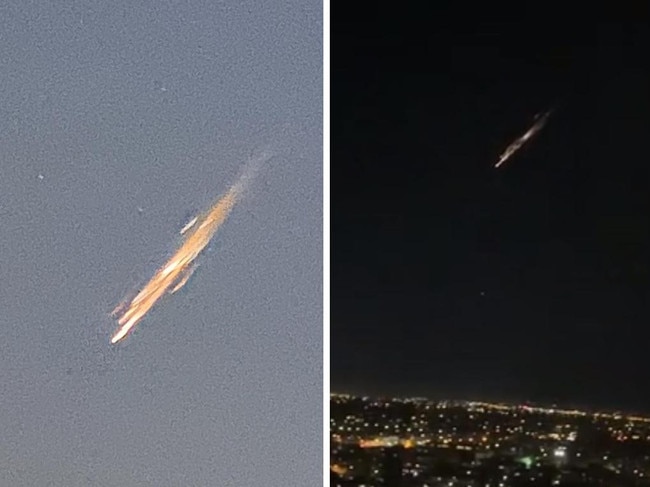
Brain mapping targets key treatment zones
A breakthrough study that mapped brain changes in people with different mental disorders has opened the way for more targeted treatment of conditions like depression and schizophrenia.

A breakthrough study that mapped brain changes in people with different mental disorders has opened the way for more targeted treatment of conditions like depression and schizophrenia.

Researchers have gathered the firmest evidence yet that a tiny subatomic particle is disobeying the known laws of physics – a result that may hint at the existence of a new force of nature.

New research suggests walking just 2337 steps a day will help to prevent cardiovascular disease. There are plenty of other health diktats that don’t quite add up. Here are eight of them.

The scientists published the letter ahead of a looming showdown at national conference.

Hard coral cover on the Great Barrier Reef has remained at a historic high level despite a widespread bleaching event in 2022, a survey has found.

The south pole of the moon could be a bit crowded this summer.

The region could be in the process of changing from the planet’s refrigerator to the its radiator, climate scientists warn.

Melbourne residents are sharing photos and videos of an exploding object that soared over the city shortly after midnight.

South Koreans have claimed one of the holy grails of science: superconductors that can be used at room temperature.

Families with children with rare diseases are pinning their hopes on gene therapy as parliamentarians push for fast-tracking of clinical trails.

The weather bureau may be reluctant to declare El Nino, but farmers are already preparing for dry times ahead.

Ranking 57th in the world in an elite international chemistry competition, Year 12 student George Chen has gone above and beyond extra credit.

Henrietta Lacks’ ‘HeLa’ cells became a cornerstone of modern medicine but her family had never been compensated.

A botched command misaligned the probe’s antenna, which it uses to communicate with Earth.

Two of America’s top climate scientists say July wasn’t the hottest month in the last 100 years let alone in 120,000 years.

Researchers hope to launch a small satellite with a telescope on board that will peer to Alpha Centauri, the star system closest to our own, to look for signs of a habitable planet.

A top US biologist has backed Sharri Markson’s reporting into the Covid-19 lab leak, saying there’s ‘very clear evidence for criminal fraud’ by Anthony Fauci and other academics who played it down.

A professor from the US National Academy of Sciences suggests a 600km in diameter shield be built to reflect light back at the sun.

A new method of screening for newborn babies is set for the first time to allow checking for multiple genetic conditions using a single test.

Five-day incubation period is the key ‘point of conflict’ between Australia and Indonesia over cattle disease suspension.

In an explosive reigniting of the Dark Emu debate, social anthropologist Peter Sutton has attacked a new ABC documentary.

A tiny robot that can travel deep into the lungs could transform cancer treatment, allowing doctors to reach and destroy previously inaccessible tumours, scientists say.

The Covid-19 pandemic may have receded, but dating apps, websites and social media groups still offer to unite vaccine-hating singles.

Tiny nematodes are able to wriggle back to life after epochs in the Siberian permafrost.

July is ‘virtually certain’ to be the hottest month on record globally by a significant margin, the UN and a European science agency have said.

A total of just 4.5 minutes of vigorous activity could reduce the risk of some cancers by up to 32 per cent even if no other exercise is performed throughout the day

Wildlife scientists will examine samples from the remains of more than 90 pilot whales that died on WA’s south coast for clues about what prompted the animals to beach themselves.

Highly aggressive and venomous fire ants are within striking distance of the NSW border, prompting a series of restrictions from the state government.

Scientists have found that male killer whales who still lived with their mothers were less likely to get into fights.

When a NASA spacecraft successfully knocked an asteroid off course last year it sent dozens of boulders skittering into space.
Original URL: https://www.theaustralian.com.au/science/page/14